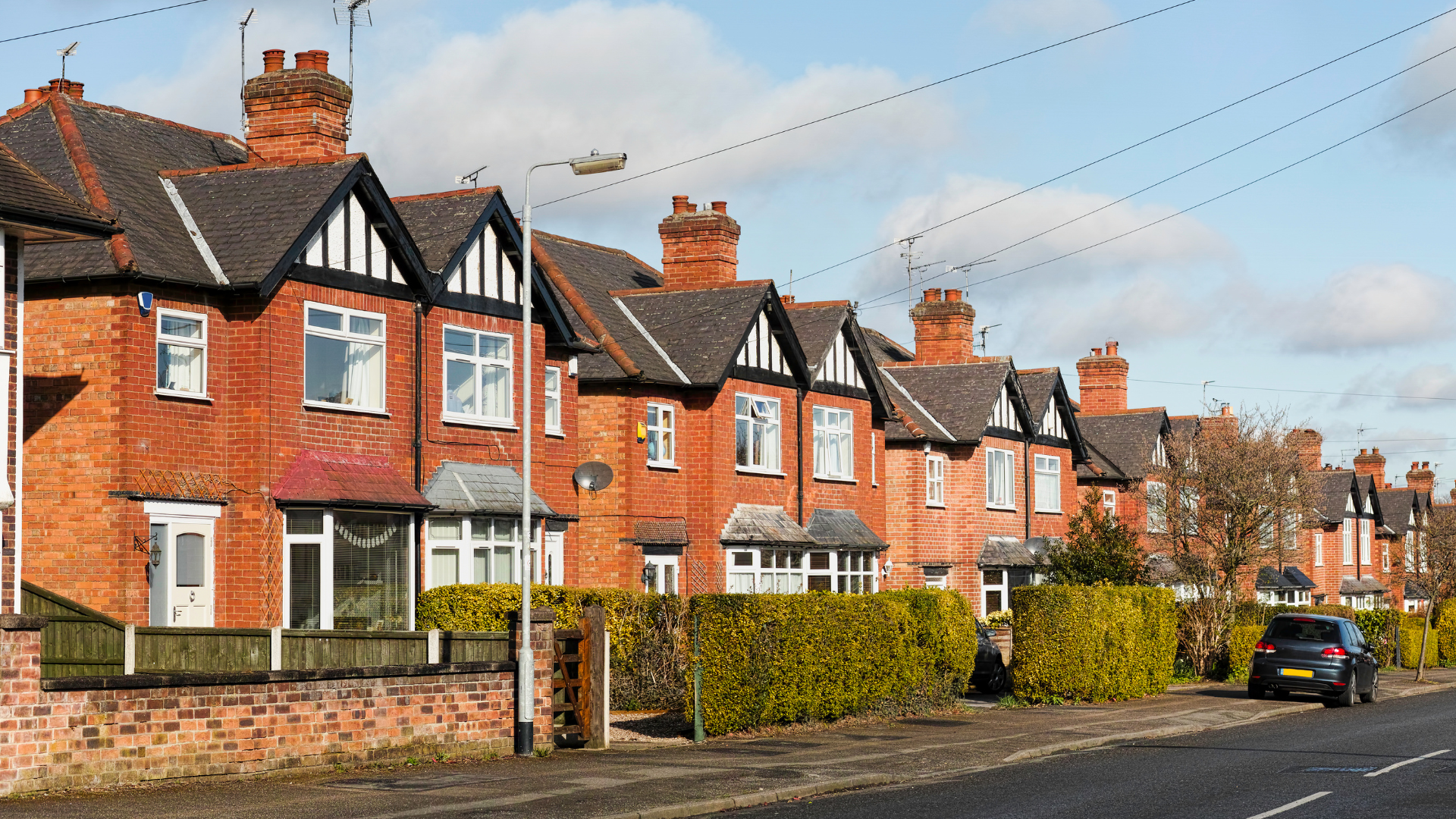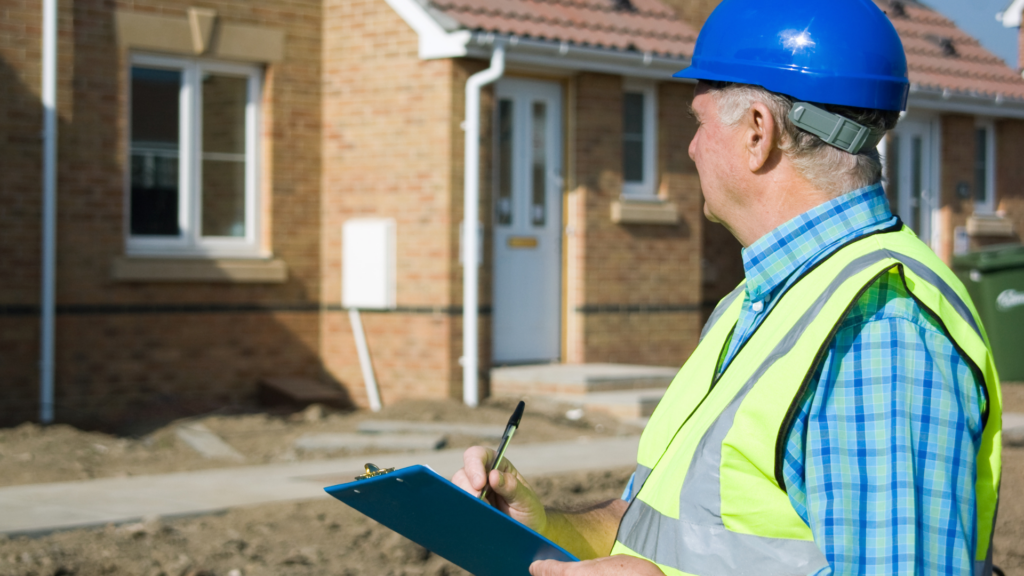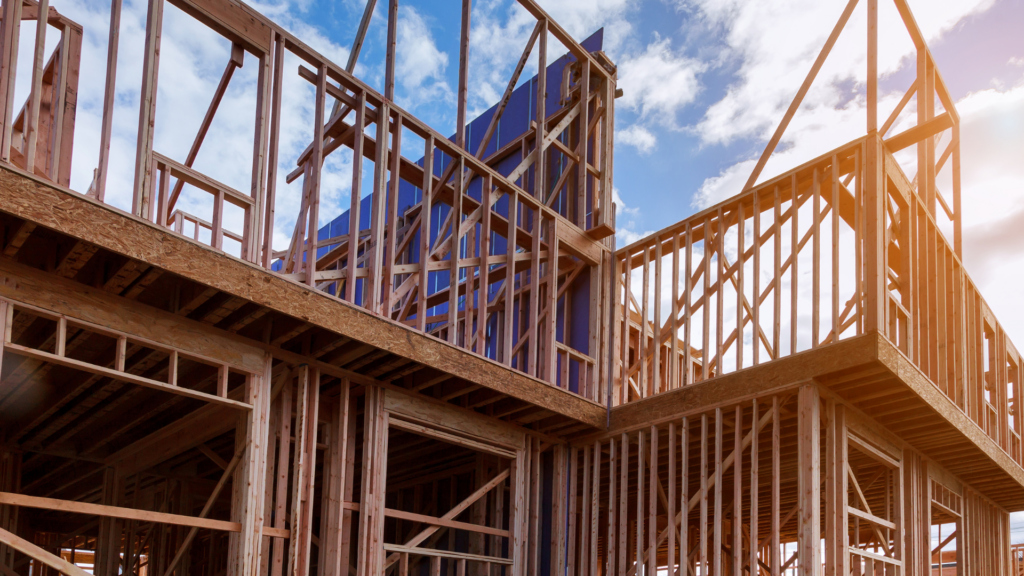- What is a Maisonette?
- Is a Maisonette a Good Investment?
- The Pros and Cons of Buying a Maisonette
- Can You Get a Mortgage on a Maisonette?
- Who Qualifies for a Mortgage?
- The Difference Between Leasehold vs Freehold Maisonette Mortgages
- Things To Consider: Before You Buy a Maisonette
- Interest Rates You Should Expect
- Mortgage Lenders for Maisonette
- How To Get a Mortgage for a Maisonette?
- Key Takeaways
- The Bottom Line
Maisonette Mortgages: Is a Maisonette Right for You?

If you’ve been hunting for a new home, you might have come across the term “maisonette.”
It has a nice ring to it, doesn’t it?
A bit French, a bit posh, but at its core, it’s a humble little house that brings some big benefits.
Whether you’re a first-time buyer or just exploring your property options, maisonettes are worth considering.
And if you’re wondering about getting a mortgage for one—good news—you’re in the right place.
In this guide, we’ll walk you through what a maisonette is, if it’s a smart investment, and all the details you need to know to secure a mortgage.
What is a Maisonette?
In simple terms, a maisonette is a small house-like property, often found in urban areas across the UK.
The name comes from the French word for ‘little house,’ which fits perfectly.
Unlike a typical flat, a maisonette usually has its own entrance, giving you more privacy and that ‘my own front door’ feeling.
Maisonettes can occupy more than one floor, so they often feel like a compact house rather than a flat.
If you’re picturing somewhere cosy, with a bit more character and your own private space—you’re on the right track.
Maisonettes are often attached to larger buildings and can be semi-detached or completely integrated within another property.
They’re particularly popular in cities like London, where space is at a premium, but you still want some privacy.
Is a Maisonette a Good Investment?
Well, it certainly can be!
Maisonettes tend to be more affordable than full houses, which can make them an excellent entry point for first-time buyers or those looking to invest in property without a colossal price tag.
You’re essentially getting the feel of a house but at a more manageable price.
Maisonettes also appreciate in value quite well, sometimes better than flats. They offer more privacy, more space, and often, some private outdoor area—whether that’s a small garden or a balcony.
This makes them an attractive option for renters or potential buyers when you decide to sell down the line. But, keep in mind that certain features, like shared spaces or noisy neighbours, might put off potential buyers.
So it’s always important to do some research on the location and the condition of the property before buying.
The Pros and Cons of Buying a Maisonette
When deciding if a maisonette is the right fit, it’s essential to weigh the good with the not-so-good.
Pros:
- Lower Purchase Price. Maisonettes are generally cheaper than full-sized houses, making them a great choice if you’re working with a tight budget. They also mean a smaller mortgage, which can save you money in the long run.
- Private Entrance. Unlike flats, maisonettes have their own front door, which means you won’t be sharing a lobby or hallways with others. More privacy for you.
- Low Maintenance. Maisonettes are often smaller and easier to look after. There’s typically less cleaning, painting, and general upkeep to worry about.
- Community Feel. Maisonettes often strike a balance between privacy and community. You may have neighbours close by but without sharing everything like you would in a block of flats.
Cons:
- Shared Spaces. Many maisonettes have shared driveways, gardens, or staircases. If you’re unlucky enough to have difficult neighbours, this could become a problem.
- Less Privacy Than a House. Although maisonettes have more privacy than flats, they don’t quite offer the same level of seclusion as a detached house.
- Noise. If your maisonette is attached to other properties, there’s the chance of noise from your neighbours, particularly if they enjoy late-night parties.
- Limited Space. Maisonettes are generally smaller than traditional houses, so if you have a large family or frequently entertain, you might feel a bit squeezed for space.
Can You Get a Mortgage on a Maisonette?
Yes, you can get a mortgage on a maisonette. However, there are a few things you need to know first.
Not all lenders will approve a mortgage on a maisonette, mainly because these properties can be a bit tricky to value compared to traditional houses.
The valuation often depends on factors like the property’s location, its neighbours, and any shared facilities.
The good news is that maisonettes are still eligible for standard residential mortgages, so you shouldn’t have too much trouble getting financing, as long as you meet the lender’s criteria.
The type of maisonette—whether it’s freehold, leasehold, or a share of freehold—can also impact the mortgage options available to you, but we’ll get to that in a bit.
Who Qualifies for a Mortgage?
When it comes to getting a mortgage for a maisonette, there are several key criteria that lenders consider:
- Your income and expenditure—can you afford the repayments?
- The size of your deposit—a larger deposit often means better rates.
- Lease length—most lenders require a leasehold to have at least 90 years remaining.
- Property type—is it a new build, or are there any unique features?
- Location—the desirability of the property’s location can affect lender decisions.
- Credit history—having a good credit score will give you more options.
- Employment status—are you employed, self-employed, or on a contract?
- Debt-to-income ratio—how much of your income is already committed to debt?
The Difference Between Leasehold vs Freehold Maisonette Mortgages
As we’ve covered, the type of ownership—leasehold or freehold —can significantly impact your maisonette’s mortgage options.
Let’s break it down.
Leasehold Maisonette
Most maisonettes in the UK are leasehold, which means you own the property for a set period, but not the land it sits on.
This type of ownership comes with extra costs like ground rent and service charges.
The length of the lease is very important—the shorter it is, the harder it will be to get a mortgage. Lenders usually prefer leases of at least 90 years.
If the lease drops below 80 years, it can be harder to sell or remortgage, and extending it can be costly and time-consuming.
Ground rent and service charges can vary a lot, and high fees may affect your ability to get a mortgage.
Always check these costs and include them in your budget.
Freehold Maisonette
If you have a freehold maisonette, congratulations—you own the property and the land it sits on.
This gives you more security as you don’t need to worry about lease expiry or paying ground rent.
But, it also means more responsibility. You are in charge of maintaining the property and the land, including any shared areas like gardens, driveways, or roofs.
These maintenance costs can add up, so it’s important to budget for unexpected repairs.
Freehold maisonettes often come with shared responsibilities. If the building is split between two owners, you will need to agree on how to maintain shared areas.
This can sometimes lead to disagreements, so having clear agreements with any co-owners is key to avoiding future issues.
Share of Freehold Maisonette
In some cases, maisonettes might have a “share of the freehold.” This means you own a share of the land the building is on, along with other owners.
It’s a mix of leasehold and freehold—you’ll have a say in maintenance decisions, but it also means working with your neighbours.
This can complicate things, and not all lenders are keen on financing properties with a shared freehold.
But if you get along well with your neighbours and have clear agreements, a share of the freehold can be a good option. It gives you more security and control without the high costs of extending a lease.
Things To Consider: Before You Buy a Maisonette
Before buying a maisonette, ask yourself a few key questions:
- Are you comfortable with shared spaces like driveways or gardens?
- Can you work well with neighbours when it comes to shared upkeep?
- Is there enough space for your needs now and in the future?
- How does the location suit your lifestyle—is it noisy, and is the area desirable?
- How long is the lease, and are there any costs to extend it if necessary?
- Can you manage the additional expenses like ground rent, service charges, and maintenance?
Interest Rates You Should Expect
Interest rates for maisonette mortgages can vary, but generally, they fall within the range of 2.5% to 5.5%.
Your rate will depend on factors like the property type, lease length, and your credit score.
Maisonettes with short leases, new builds, or those located above shops tend to attract higher rates. It’s always a good idea to shop around or speak to a broker to find the best rate for your situation.
Mortgage Lenders for Maisonette
When it comes to maisonette mortgages, some lenders are more willing than others to approve loans.
Big names like HSBC, NatWest, and Virgin Money are known to finance maisonettes, but freehold maisonettes can be a different story.
Some lenders, like Halifax for Intermediaries and Clydesdale Bank, may reject applications for freehold maisonettes due to the complexity of maintenance responsibilities.
How To Get a Mortgage for a Maisonette?
Getting a mortgage for a maisonette is like getting a mortgage for any other property—but with a few extra considerations.
The smartest move is to speak to an independent mortgage broker, particularly one with experience in maisonette mortgages.
They’ll know which lenders are most likely to approve your application and help you navigate any hiccups along the way.
A good broker can also guide you on costs like ground rent, service charges, and insurance, as well as help you understand the differences between leasehold and freehold options.
Their insight can save you a lot of time and help you get the best deal possible.
Key Takeaways
- Maisonettes are compact homes with more privacy than flats, often found in cities. They’re a budget-friendly choice for first-time buyers and can grow in value.
- Benefits include a lower price, private entrance, and easy upkeep. Downsides may be shared areas, noise, and limited space.
- You can get a mortgage for a maisonette, but some lenders might find it tricky to value based on the ownership type.
- Interest rates usually fall between 2.5% and 5.5%, depending on factors like lease length and property type.
The Bottom Line
Maisonettes can be a fantastic choice if you’re looking for something affordable, cosy, and private.
Just make sure you know what you’re getting into—from shared spaces to lease details.
Getting the right mortgage for a maisonette might take a bit of extra effort, but with the help of a good broker, you’ll be able to find a deal that works for you.
Reach out to us and we’ll match you with a good mortgage broker who can help you secure the best mortgage deal for your maisonette.
Get Matched With Your Dream Mortgage Advisor...

Frequently asked questions
What is better: flat or maisonette?
It depends on what you’re looking for. A maisonette often offers more privacy, a separate entrance, and sometimes outdoor space.
Flats are more straightforward and typically come with less maintenance but shared areas. If privacy and a bit of garden appeal to you, a maisonette might be the better choice.
Are maisonettes harder to sell?
They can be, depending on factors like lease length, whether they are above commercial premises, or if they have a freehold or leasehold.
Shorter leases or properties above shops may make it harder to secure a mortgage for potential buyers, which can affect their saleability.




